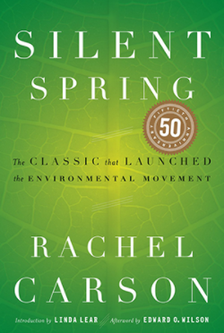SJ Beard, Academic Programme Manager and Senior Research Associate
Email: sjb316@cam.ac.uk
Much of their work focuses on developing methods to assess and manage global systemic risks such as those relating to climate change. This draws on a comprehensive study of methods for assessing global catastrophic risk but also relates to considerations of global (in)justice and public policy. SJ is also an advisor to the All Party Parliamentary Group for Future Generations, an Affiliated Researcher at the Institutet för framtidsstudier, a BBC New Generation Thinker, and a member of the editorial board of the journal Futures.
Can you tell us about your pathway to CSER?
I came to CSER with a background in Philosophy as well as experience of working in UK policy and politics. My PhD was on population ethics and the work of Derek Parfit. This was almost entirely theoretical in its approach to understanding our ethical responsibilities towards future people; however, I strongly believed that my work could only have value if I could apply it to real-world cases. This has required that I develop my philosophical thinking in more practically orientated directions. However, it has also led me to work on developing new methods for studying diverse human futures, and especially those in which we face global catastrophes. My work at CSER, first as a Postdoctoral Research Associate and now as Academic Programme Manager has combined these two strands of work with the aim of shaping human futures towards those that would be maximally safe and beneficial.
Please can you tell us about your main area of expertise?
I work in analytical moral and political philosophy and in particular questions relating to our ethical obligations concerning the future and future generations. I apply a range of techniques from futures studies to assess the risks facing humanity and how we might best manage them. I bring practical experience of working in politics and public policy to design risk management solutions and help diverse cooperate to implement them. I also work directly with a range of media to raise awareness of, and build people’s sense of agency around, global catastrophic risk.
Please tell us about your current research at CSER?
At present, I am working on developing a programme to study human futures and environmental risks. Thinking about existential and global catastrophic risk often focuses on technology as both a driver of risk and a potential saviour from it. However, we currently face significant risks merely from being 8 billion people trying to live well on planet Earth. These include threats to our planetary system, such as climate change and loss of biosphere integrity, but also vulnerability and exposure to a wide range of risks, from volcanic eruptions to pandemics, because of complex global supply chains, over-dependence on a small number of food types, high population densities, and the ‘semi-anarchic default condition’ of our current world order. It is possible that new developments, such as transhumanism or space colonization, will save us from these problems, but it is also possible that these will be impossible, infeasible, undesirable, or simply take too long. We, therefore, need to understand how we can achieve safe and beneficial futures for humanity and the Earth’s biosphere as quickly and effectively as possible.

What drew you to your research initially and what parts do you find particularly interesting?
I have been developing this research programme for several years and it attracts me for many different reasons. Firstly, I find it interesting because the questions it poses are so complex and interdisciplinary and because it defies easy answers. I am also attracted to it because it is a problem that is little explored, even within the field of Existential Risk Studies, despite the fact that the problem it describes is easy to grasp and very close to many contemporary social, political, and cultural themes, implying that there may be many direct and scalable routes from effective research to large scale impact.
What are your motivations for working in Existential Risk?
I started working on existential risk somewhat by accident. My initial focus and concern was simply on finding ways of making my philosophical thinking more practically focused, but without sacrificing the ‘big picture’ concepts and arguments that interested me the most. This lead me to thinking about global population, and to the challenges of making ethical arguments about future generations, which in turn lead me to working on human extinction. Now that I am working at the Centre for the Study of Existential Risk I genuinely feel like there is nowhere else on earth I could feel fulfilled as a researcher, or even just as a person. Being part of such a diverse and engaged research community is so stimulating and satisfying!
What do you think are the key challenges that humanity is currently facing?
People always used to ask me "What should we be most worried about?" and my reply was "I don’t want you to worry about anything, worry isn’t a very motivating emotion after all, why not be curious instead?" That is very much my approach to studying existential risk. Humanity faces many challenges but we love a challenge, so let's put that love to work. The more I work on the problems of existential risk the more I tend to focus less on trying to solve particular problems and the more I see humanity as creating quite broad classes of vulnerability and exposure to risk through how we organize our societies and how we live our lives. Solving that kind of problem is not something anyone can hope to do alone, although clear thinking and good research will always be helpful. It requires a wholesale change in how we think about human civilization and what we want to do with it. In her Parable of the Sower, Octavia Butler put it like this “Civilization is to groups what intelligence is to individuals. It is a means of combining the intelligence of many to achieve ongoing group adaptation. Civilization, like intelligence, may serve well, serve adequately, or fail to serve its adaptive function. When civilization fails to serve, it must disintegrate unless it is acted upon by unifying internal or external forces.” That is the best description I have come across for the challenge we all face!
For people who are just getting to grips with Existential Risk, do you have any recommendations for reading, people to follow or events to attend?
Do read ‘classics’ of the field, from Martin Rees’s “Our Final Century” to Karin Kuhlemann’s “Complexity, Creeping Normalcy and Conceit” or from Nick Bostrom’s “Vulnerable World Hypothesis” to Rachel Carson’s “Silent Spring”, whether you agree with them or not they are fantastic examples of how researchers have sought to save humanity from itself.

However, make sure you also make time to read more broadly, from science fiction stories like Octavia Butler’s “Parable of the Sower” or Cixin Liu’s “Dark Forest” to books that explain the history of some of the core ideas of this field like Sharon McGrayne’s “The Theory That Would Not Die” (about Baye’s theory) or Carl Zimmer’s “She Has Her Mother’s Laugh” (on heredity, in all its forms). The problems we are trying to solve are way too complex to be solved by understanding just one thing, so you need to be an intellectual omnivore.

Please provide links to where people can follow up with you.
I am @CSERSJ on Twitter, Facebook, Linkedin. My personal website (which I don’t update much) is: https://sjbeard.weebly.com/